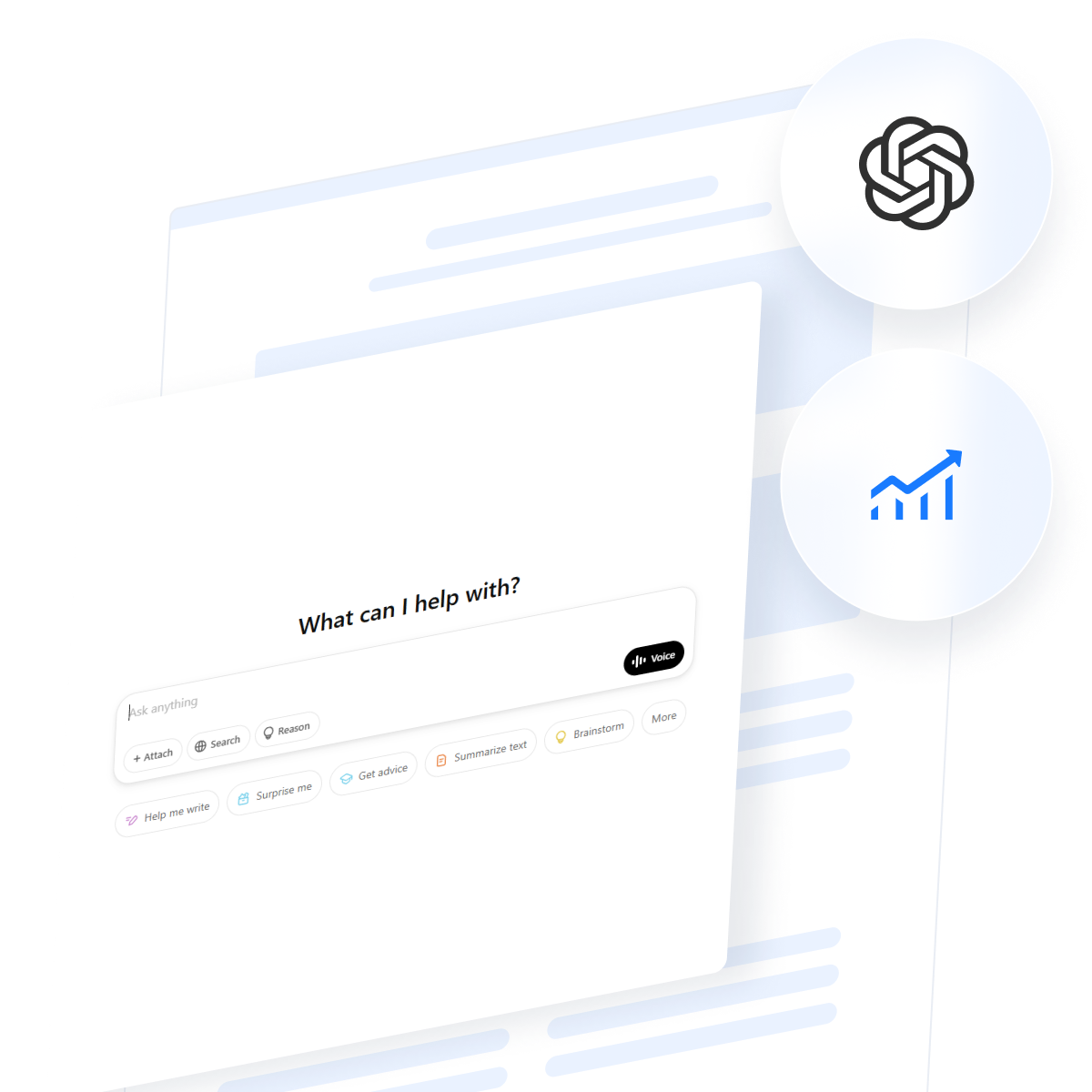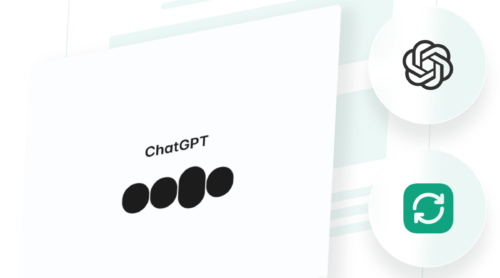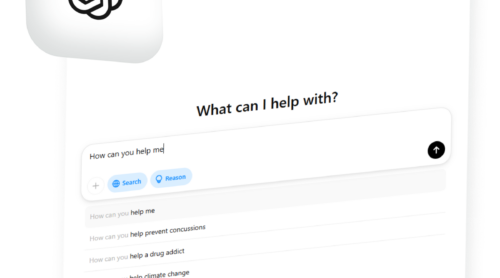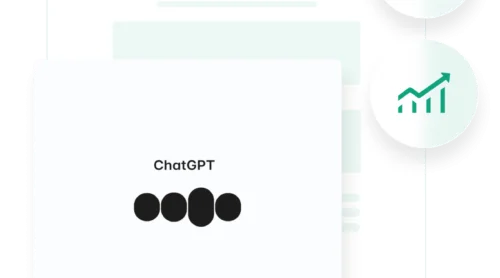AI is rapidly transforming the marketing world, with tools like ChatGPT leading the charge. This powerful language model can generate human-like text, making it invaluable for tasks such as content creation, SEO, and customer engagement. As AI continues to evolve, it’s reshaping how marketers approach their campaigns, streamlining workflows, and offering new ways to connect with audiences.
This article provides actionable ChatGPT prompts for marketing to help you boost your campaigns. Whether you’re focusing on content creation, social media, or email marketing, these prompts will enable you to use AI effectively and enhance your marketing strategies.
Understanding ChatGPT and Prompt Engineering
ChatGPT is a state-of-the-art AI language model developed by OpenAI. It is designed to generate human-like text based on the input it receives, making it incredibly versatile for various applications in marketing. Whether you’re generating blog posts, creating ad copy, or drafting email campaigns, ChatGPT can produce coherent and contextually relevant content that aligns with your brand voice. By understanding the nuances of language and context, it can assist marketers in creating high-quality content quickly and efficiently, ultimately saving time and enhancing creativity.
The Art of Prompt Engineering
Effective prompt engineering is key to harnessing the full potential of ChatGPT. A prompt is the instruction or query you provide to the AI, and the quality of that input directly influences the output you receive.
Effective prompt engineering is crucial when using ChatGPT to ensure you get the desired results. A prompt is the input you give to ChatGPT, and the quality of that input determines the quality of the output. To get the most out of ChatGPT, it’s essential to craft clear, specific, and context-rich prompts.
Key Elements of a Good Prompt
To generate high-quality responses from ChatGPT, it’s essential to craft prompts that are clear, detailed, and tailored to your goals. Here are the key components that make up a good prompt:
- Context: Providing context helps ChatGPT understand the situation or subject matter. For example, if you’re writing product descriptions, mention the product’s features, benefits, and target market. The more background you give, the more relevant and accurate the output will be.
- Desired Outcome: Clearly state the outcome you want to achieve. Are you looking for a blog post, social media caption, email subject line, or ad copy? By specifying the format and purpose of the content, ChatGPT will tailor its responses accordingly.
- Audience: Consider your target audience when crafting prompts. For example, writing for a younger demographic may require a more casual tone, while a professional audience may need a more formal approach. Be explicit about the audience so that ChatGPT can adjust its language and style.
- Tone: Define the tone you want in the response. Whether you want it to be persuasive, informative, casual, or humorous, clearly stating the desired tone ensures that the AI generates content aligned with your brand voice.
Common Pitfalls and How to Avoid Them
When creating ChatGPT marketing prompts, there are several common issues that can lead to suboptimal results. Understanding these pitfalls and knowing how to avoid them will help you craft more effective prompts that produce high-quality content.
Below is a table outlining these challenges along with explanations and tips for improvement:
| Pitfall | Explanation | How to Avoid It |
| Ambiguity | Vague or unclear prompts often result in generic or irrelevant content. When prompts are too open-ended, ChatGPT may not fully understand your intent, leading to responses that miss the mark. | Be specific in your instructions. Instead of a vague prompt like “Write something about SEO,” use clear direction such as “Write a 500-word article about the importance of long-tail keywords for SEO in 2025.” This ensures the AI focuses on exactly what you need. |
| Lack of Detail | If the prompt doesn’t contain enough context, ChatGPT may generate responses that are too broad or generic, failing to capture the nuances of your campaign. Without key information, the content will lack the depth or relevance you require. | Provide all necessary details, such as the target audience, product features, or specific aspects of your marketing goals. For instance, asking “Generate five blog post ideas for a marketing agency targeting startups” gives much more direction than a simple request for blog post ideas. |
| Overcomplicating the Prompt | Sometimes, providing too much information in a prompt can overwhelm ChatGPT and result in disorganized or cluttered content. A complex or overly detailed prompt might confuse the AI about what’s most important. | Keep your prompts clear and concise. While context is key, avoid overloading the AI with excessive information. A focused prompt like “Write a persuasive email for a Black Friday sale on eco-friendly products” provides enough guidance without complicating things. |
By recognizing and avoiding these common pitfalls, you’ll be able to create more focused and effective ChatGPT prompts for marketing, ensuring that the AI delivers the high-quality, relevant content you need to power your campaigns.
ChatGPT Prompts for Marketing: Examples
📝 Content Creation
Content creation is central to any successful marketing strategy. Whether you’re producing blog posts, social media content, or product descriptions, quality content helps you engage with your audience and boost conversions.
Effective ChatGPT Prompts for Content Creation:
- Blog Post Ideas:
“Generate 10 blog post ideas about how AI is transforming digital marketing for small businesses, targeting entrepreneurs and marketing professionals in the tech industry.” - Content Writing:
“Write a 600-word blog post explaining the latest trends in influencer marketing, specifically for beauty brands targeting millennials on Instagram. Focus on the importance of micro-influencers and authenticity in campaigns.” - Social Media Captions:
“Write a creative and engaging Instagram caption promoting a limited-time 20% discount for an eco-friendly skincare product. The tone should be friendly, persuasive, and focused on sustainability, targeting women aged 25-35.” - SEO-Optimized Content:
“Write an SEO-friendly blog post of at least 800 words about email marketing best practices. Include the keyword ‘email automation’ 3 times, and mention the importance of personalization and subject line optimization in increasing open rates.” - Product Descriptions:
“Write a product description for an eco-friendly yoga mat made from natural rubber. Highlight its durability, non-slip features, and environmental benefits. Keep the tone informative yet appealing to health-conscious consumers.”
By using these ChatGPT prompts for content creation, marketers can ensure they produce highly relevant, engaging, and SEO-friendly content that meets their marketing objectives. The key is to be specific about the desired outcome, audience, and tone, ensuring that ChatGPT delivers targeted and effective results.
📱 Social Media Marketing
Social media marketing is a dynamic and essential part of any modern marketing strategy. Crafting engaging posts that resonate with your audience, boosting brand awareness, and driving conversions require creativity and consistency.
Effective ChatGPT Prompts for Social Media Marketing:
- Instagram Post Ideas:
“Generate 5 Instagram post ideas for a fashion brand launching a new line of sustainable clothing. Focus on promoting the eco-friendly aspects of the collection and create captions that encourage user engagement.” - Facebook Ad Copy:
“Write Facebook ad copy for a fitness app offering a 30-day free trial. The tone should be energetic and motivational, targeting young adults interested in improving their health and wellness.” - Twitter Engagement Post:
“Create a tweet that encourages followers to share their favorite productivity tips. The tone should be casual and friendly, aimed at a professional audience looking to enhance their work-life balance.” - LinkedIn Article Snippet:
“Write a compelling LinkedIn post introducing a new blog article on the importance of data-driven decision-making in marketing. Keep the tone professional and thought-leader focused, targeting marketing executives.” - Social Media Contest Prompt:
“Create a social media contest idea for a beauty brand where users must share their skincare routine using a specific product. Include the campaign hashtag, call-to-action, and prize details, targeting skincare enthusiasts.”
By using these ChatGPT prompts for social media marketing, you can create content that resonates with your audience, boosts engagement, and aligns with your brand’s goals. Remember to tailor the tone, context, and target audience for each platform to get the most effective results.
✉ Email Marketing
Email marketing remains one of the most effective ways to engage directly with your audience and drive conversions. Whether you’re sending newsletters, promotional offers, or transactional emails, the key to success lies in crafting compelling and personalized messages.
Effective ChatGPT Prompts for Email Marketing:
- Promotional Email:
“Write a promotional email for an online clothing store offering a 15% discount on new arrivals. The tone should be upbeat and persuasive, and the email should include a clear call-to-action encouraging customers to shop now.” - Welcome Email:
“Write a warm and engaging welcome email for new subscribers of a health and wellness blog. The email should introduce the brand, offer a discount code for the first purchase, and encourage users to explore the website’s resources.” - Abandoned Cart Email:
“Create an abandoned cart email for an e-commerce website that sells home decor. The tone should be friendly and motivating, and include a reminder of the items left behind, along with a limited-time offer to incentivize the customer to complete their purchase.” - Newsletter Copy:
“Write a monthly newsletter for a tech company focused on recent product updates and industry news. The email should include links to blog posts, encourage readers to sign up for a product demo, and feature a section for upcoming events.” - Re-engagement Email:
“Write a re-engagement email for a subscription service targeting users who haven’t opened emails in the last 30 days. The tone should be personal and inviting, with a special offer or incentive to encourage them to return.”
By using these ChatGPT prompts for email marketing, you can quickly generate targeted, engaging, and personalized email copy that helps you connect with your audience, increase open rates, and drive conversions. Make sure to provide clear details about the audience, tone, and purpose to ensure the AI produces content that aligns with your campaign goals.
🔍 Search Engine Optimization (SEO)
Search Engine Optimization is essential for increasing the visibility of your content in search engine results pages (SERPs). To drive organic traffic, your content must be optimized with relevant keywords, meta descriptions, and headers, all while maintaining high-quality, engaging content.
Effective ChatGPT Prompts for SEO:
- Keyword-Rich Blog Post:
“Write a 700-word blog post about the benefits of content marketing for small businesses. Incorporate the keyword ‘small business content marketing strategy’ naturally in the introduction, body, and conclusion.” - Meta Description:
“Create a meta description for a blog post on ‘how to optimize product pages for SEO.’ The meta description should be concise (under 160 characters), include the target keyword, and entice the user to click.” - SEO-Friendly Article Outline:
“Generate an outline for a 1,500-word article on ‘top SEO trends in 2025.’ Include main headings such as ‘Importance of AI in SEO,’ ‘Voice Search Optimization,’ and ‘Mobile-First Indexing,’ and suggest relevant subheadings for each section.” - Long-Tail Keyword Optimization:
“Write a 600-word blog post targeting the long-tail keyword ‘how to create a content marketing plan for small businesses in 2025.’ Include tips, strategies, and examples for creating an actionable plan.” - Content Optimization Tips:
“Generate a list of 10 actionable SEO tips for optimizing a website’s homepage. Focus on the importance of keyword placement, site speed, and mobile optimization.”
By using these ChatGPT prompts for SEO, you can generate content that is optimized for search engines and structured in a way that improves your visibility online. Whether you’re writing blog posts, creating metadata, or building long-form content, ChatGPT can help ensure that your content adheres to SEO best practices, improving your chances of ranking higher and attracting organic traffic.
📰 Advertising
Advertising plays a critical role in any marketing strategy, whether it’s digital ads, paid search campaigns, or display ads. Creating compelling ad copy that grabs attention, speaks to the target audience, and drives conversions is essential.
Effective ChatGPT Prompts for Advertising:
- Google Ads Copy:
“Create a Google Ads text ad for an online course on digital marketing. The ad should highlight the course’s affordability and effectiveness in just 8 weeks. Focus on driving sign-ups from aspiring marketers.” - Facebook Ad Copy:
“Write a persuasive Facebook ad copy for a subscription-based meal kit delivery service. The ad should focus on convenience, health benefits, and a limited-time 20% discount, targeting busy professionals aged 25-45.” - Display Ad Banner:
“Design a catchy display ad banner for a luxury watch brand promoting its holiday sale. The copy should convey exclusivity, elegance, and urgency, with a clear call-to-action like ‘Shop Now and Save 30%.’” - LinkedIn Sponsored Content:
“Write LinkedIn sponsored content for a B2B SaaS company offering an HR management solution. Focus on how the platform improves employee engagement and streamlines HR processes for medium-sized businesses.” - Retargeting Ad Copy:
“Create retargeting ad copy for users who viewed a specific product page but didn’t complete a purchase. Mention a limited-time discount and include a strong call to action, such as ‘Shop Now and Save 15%.’”
By using these ChatGPT prompts for advertising, marketers can efficiently generate ad copy that resonates with their target audience, improves engagement, and drives conversions. The key is to provide detailed instructions regarding the ad’s goal, audience, and platform to ensure the AI creates a copy that aligns with your campaign objectives.
Advanced Applications
As AI tools like ChatGPT continue to evolve, their integration into more complex marketing workflows offers exciting opportunities for marketers to enhance efficiency, decision-making, and automation. By exploring advanced applications of ChatGPT, marketers can take their strategies to the next level by combining AI with other marketing tools and automating routine tasks that traditionally required more time and human resources.
Integrating ChatGPT with Other Tools
One of the most powerful ways to leverage ChatGPT marketing prompts is by integrating AI with data analytics and reporting platforms. Combining ChatGPT with tools like Google Analytics, CRM systems, or email campaign management software can help marketers make more data-driven decisions and optimize campaigns on the fly.
Effective ChatGPT Prompts for Integration:
- Analytics Report Interpretation:
“Using the Google Analytics report for the last 30 days, generate a summary of key performance metrics, including website traffic, conversion rates, and bounce rates. Suggest areas for improvement based on these insights.” - Data-Driven Strategy Development:
“Based on recent social media performance data from Hootsuite, create a tailored content strategy for the next quarter. Focus on the most engaging content types and recommend optimal posting times for maximum reach.”
Automating Routine Tasks
ChatGPT can also be used to automate routine marketing tasks, freeing up time for more strategic initiatives. By incorporating ChatGPT marketing prompts into automation workflows, marketers can automate everything from customer service responses to content scheduling and report generation.
Effective ChatGPT Prompts for Automation:
- Customer Service Responses:
“Generate a friendly and helpful customer service response to a complaint about late product delivery, offering an apology and a solution such as a discount on the next purchase.” - Social Media Scheduling:
“Write 10 Twitter posts for the upcoming week, focusing on promoting a new product launch. The posts should be a mix of informational content, engaging questions, and promotional offers.” - Report Generation:
“Create a weekly performance summary report for a paid social media campaign, including engagement metrics, click-through rates, and ROI, along with recommendations for improvement.”
By incorporating advanced ChatGPT applications into their workflows, marketers can streamline operations, make data-driven decisions, and enhance the overall effectiveness of their campaigns. Integrating ChatGPT with other tools and automating routine tasks can significantly improve productivity and lead to more optimized marketing efforts.
Ethical Considerations and Best Practices
As AI technologies like ChatGPT become integral to modern marketing strategies, it’s important to address the ethical considerations that arise from their use. While ChatGPT can greatly enhance productivity and creativity, ensuring authenticity and protecting user data should remain top priorities for marketers. Below, we explore the ethical challenges and best practices when utilizing ChatGPT marketing prompts.
✅ Ensuring Authenticity
Even though ChatGPT can generate human-like text, marketers must maintain human oversight to ensure the content aligns with their brand voice and values. AI-generated content can lack the emotional depth, personal touch, or nuanced understanding that a human marketer can provide. Relying too heavily on AI-generated text without careful review risks losing the authenticity that builds trust with audiences.
Moreover, fact-checking is crucial. AI may generate content that is factually inaccurate or misleading, and if not carefully vetted, misinformation can spread. To maintain authenticity and credibility, ensure that human editors review all AI-generated content and make necessary adjustments to keep the tone aligned with your brand’s message and values.
Best Practices for Authenticity:
- Human Review: Always have a human review of AI-generated content before publication.
- Brand Voice: Use clear guidelines when instructing ChatGPT to maintain your brand’s tone and style.
- Fact-Check: Verify the accuracy of facts and data within AI-generated content to avoid misinformation.
🔒 Data Privacy Concerns
When integrating AI tools like ChatGPT into marketing workflows, data privacy becomes a significant concern. ChatGPT often requires access to customer data to generate personalized content, and mishandling or misuse of that data can lead to security breaches and privacy violations. Marketers must ensure compliance with data protection regulations, such as the General Data Protection Regulation (GDPR) and the California Consumer Privacy Act (CCPA), and prioritize user consent and transparency.
To minimize risks, marketers should be mindful of how they handle and store customer data when using AI. Only share necessary information, and implement robust security practices to safeguard data against unauthorized access. Additionally, always ensure that users understand how their data will be used and provide options to opt-out when appropriate.
Best Practices for Data Privacy:
- Comply with Regulations: Ensure AI tools adhere to relevant data privacy laws like GDPR and CCPA.
- Obtain Consent: Always ask for explicit consent when collecting or using customer data for AI-powered marketing efforts.
- Minimize Data Use: Limit the amount of personal data shared with AI tools to what’s strictly necessary for content generation.
- Secure Data: Use strong cybersecurity measures to protect personal and sensitive data when integrating AI into your marketing activities.
By following these ethical practices, marketers can ensure that their use of ChatGPT remains responsible, transparent, and aligned with both consumer expectations and legal standards. Ethical considerations will ultimately foster a deeper level of trust with audiences, contributing to long-term brand loyalty.
FAQ
How can a chatbot help with marketing efforts?
How can I use ChatGPT for sales and lead generation?
What are some AI tools for marketing that I can integrate into my campaigns?
How can I integrate AI into my business operations effectively?
Conclusion
ChatGPT offers immense potential for marketers looking to enhance their campaigns across various domains, from content creation and SEO to social media marketing and email campaigns. By using ChatGPT marketing prompts, marketers can generate high-quality, relevant content more efficiently, streamline workflows, and improve engagement with their target audiences. As AI continues to revolutionize marketing practices, leveraging its capabilities can give businesses a competitive edge and save valuable time.
However, it is important to approach the use of ChatGPT with care, ensuring that the content remains authentic and aligned with the brand’s voice. By following ethical guidelines, such as maintaining human oversight and prioritizing data privacy, marketers can use AI responsibly without compromising customer trust. As the landscape of AI-driven marketing evolves, balancing innovation with ethics will be crucial in delivering value to both businesses and consumers.






